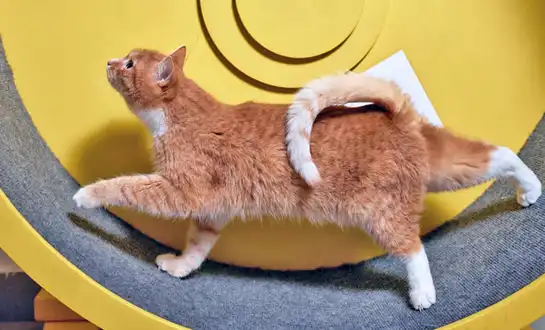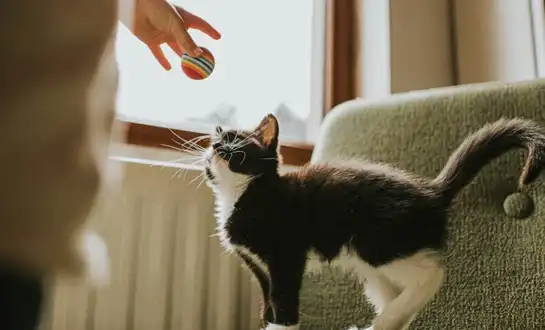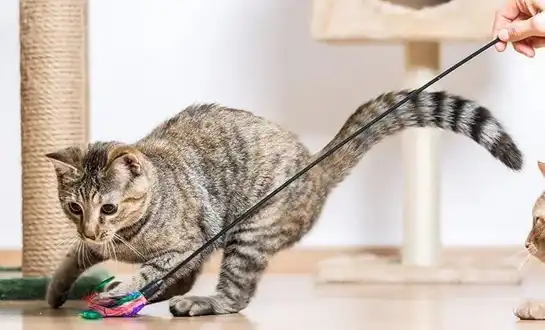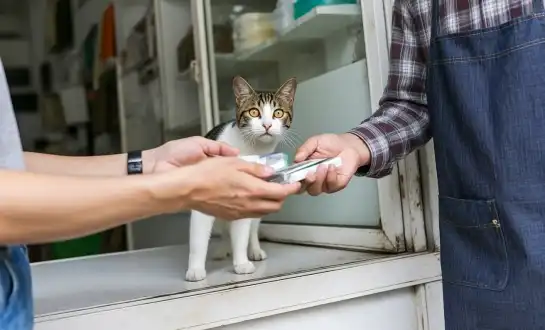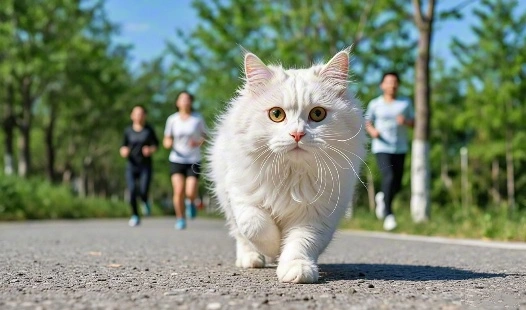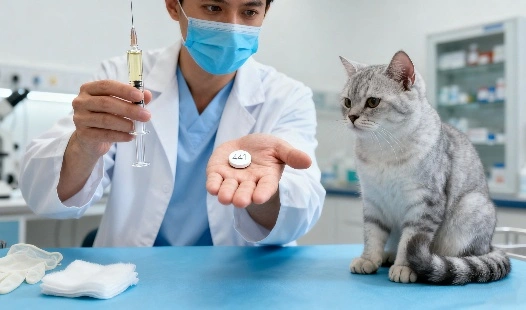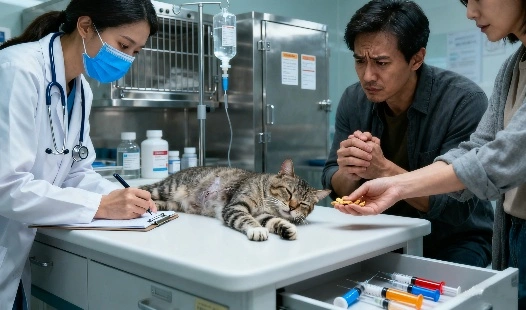Life After FIP: Long-Term Care for Your Cat Post-GS-441524 Treatment
Monitoring Your Cat's Health: Key Indicators
Feline Infectious Peritonitis (FIP) is a devastating and complex disease that, until recently, was almost always considered a death sentence for cats diagnosed with it. The emotional toll on pet owners and the lack of effective treatments made FIP one of the most feared feline illnesses. However, with the advent of GS-441524 fip treatment, the outlook for cats suffering from this condition has changed dramatically. Today, many cats are not only surviving but also thriving long after their treatment, regaining their vitality and enjoying improved quality of life. This article will guide you through the essential aspects of long-term care following GS-441524 therapy, including monitoring health markers, ensuring proper nutrition, and scheduling routine veterinary check-ups. By doing so, you can help your feline friend maintain optimal health, happiness, and resilience for years to come.
|
|
|
Monitoring Your Cat's Health: Key Indicators
After your cat completes the GS-441524 treatment, vigilant monitoring is crucial to ensure their continued well-being. Here are some key health indicators to keep an eye on:
Regular Veterinary Check-ups
Schedule routine check-ups with your veterinarian to monitor your cat's progress and catch any potential issues early. These visits typically include physical examinations, blood tests, and sometimes imaging studies.
Blood Work Analysis
Periodic blood tests are essential to track your cat's recovery. Key parameters to monitor include:
- Complete Blood Count (CBC)
- Serum chemistry panel
- Protein levels (albumin, globulin, and total protein)
- Inflammatory markers
Weight Monitoring
Keep track of your cat's weight regularly. Steady weight gain or maintenance is a positive sign of recovery. Sudden weight loss could indicate a relapse or other health issues.
Behavioral Changes
Observe your cat's behavior closely. Look for signs of increased energy, improved appetite, and return to normal grooming habits. Any sudden changes in behavior should be reported to your veterinarian.
Nutritional Support for Recovered FIP Cats
Proper nutrition plays a vital role in your cat's recovery and long-term health after FIP treatment. While factors such as the GS-441524 price may influence treatment planning, balanced dietary support remains essential for sustained healing.
|
|
|
|
High-Quality Protein Sources
Offer your cat a diet rich in high-quality animal proteins to support muscle recovery and overall health. Look for foods with real meat as the first ingredient.
Balanced Nutrients
Ensure your cat's diet includes a balance of essential nutrients, including:
- Omega-3 fatty acids for anti-inflammatory benefits
- Taurine for heart and eye health
- Vitamins A, D, and E for immune support
- Minerals like zinc and selenium for overall well-being
Hydration
Encourage adequate water intake to support kidney function and overall health. Consider offering wet food or adding water to dry kibble to increase moisture consumption.
Supplements
Consult with your veterinarian about potential supplements that may benefit your cat's recovery, such as probiotics for digestive health or L-lysine for immune support.
Building Immunity: Post-Treatment Exercise and Play
Physical activity and mental stimulation are crucial for rebuilding your cat's strength and boosting their immune system after FIP treatment.
Gradual Exercise Introduction
Start with short, gentle play sessions and gradually increase duration and intensity as your cat regains strength. This could include:
- Interactive toys like feather wands or laser pointers
- Puzzle feeders to encourage mental stimulation
- Gentle climbing on cat trees or scratching posts
Environmental Enrichment
Create a stimulating environment for your cat to explore and play:
- Provide perches near windows for bird watching
- Rotate toys regularly to maintain interest
- Consider safe outdoor experiences like a catio or supervised harness walks
Stress Reduction
Minimize stress in your cat's environment to support their immune system:
- Maintain a consistent routine
- Provide quiet areas for rest and relaxation
- Use pheromone diffusers to create a calming atmosphere
|
|
|
|
Conclusion
The journey of caring for a cat post-FIP treatment with GS-441524 requires dedication, patience, and constant vigilance from the pet owner. While the treatment itself may bring a cat back from the brink of illness, the period that follows is equally important for ensuring a lasting recovery. By focusing on regular health monitoring, such as routine veterinary check-ups and blood tests, you can catch any potential issues early and give your cat the best chance at long-term wellness. Providing proper nutrition tailored to your cat's age and condition helps strengthen their immune system and supports overall vitality. Gradual reintroduction of exercise and play not only aids physical strength but also contributes to emotional well-being. Remember, every cat's recovery journey is unique, so always consult your veterinarian for personalized advice, ongoing support, and specific care recommendations that match your cat's individual needs.
FAQ
1. Q: How long should I continue monitoring my cat after GS-441524 treatment?
A: It's recommended to continue close monitoring for at least 3-6 months post-treatment. However, regular check-ups and vigilance should be maintained throughout your cat's life to ensure early detection of any potential relapse or other health issues.
2. Q: Can my cat receive vaccinations after FIP treatment?
A: The timing of vaccinations post-FIP treatment should be discussed with your veterinarian. Generally, it's advisable to wait until your cat's immune system has fully recovered, which may take several months. Your vet may recommend titer testing to determine your cat's immunity levels before administering any vaccines.
3. Q: Is it safe for my recovered cat to interact with other cats?
A: While cats who have recovered from FIP are not considered contagious, it's best to introduce them gradually to other cats. Ensure all cats are up-to-date on their vaccinations and monitor interactions closely. If you have any concerns, consult with your veterinarian for personalized advice.
Call to Action
The significance of providing high-quality care for your cherished feline friends is something we at BLOOM TECH well get. For cats fighting FIP, our GS-441524 is the finest option since it is made to the highest standards. We want to become your go-to animal health partner by providing you with top-notch products at affordable prices and by keeping our operations running smoothly.
Is GS-441524 a reliable source for you as a veterinarian? Your search ends here. If you have any concerns about our products or how they might help your patients, our team of specialists is here to help. We provide reasonable prices without sacrificing quality, so don't allow worries about the GS-441524 price stop you.
Take the first step towards providing the best care for FIP-affected cats. Contact us today at Sales@bloomtechz.com to learn more about our GS-441524 offerings and how we can support your veterinary practice. Together, we can make a difference in the lives of cats fighting FIP.
References
1. Pedersen, N.C., et al. (2019). Efficacy and safety of the nucleoside analog GS-441524 for treatment of cats with naturally occurring feline infectious peritonitis. Journal of Feline Medicine and Surgery, 21(4), 271-281.
2. Addie, D.D., et al. (2020). Feline infectious peritonitis. ABCD guidelines on prevention and management. Journal of Feline Medicine and Surgery, 22(11), 1047-1068.
3. Murphy, B.G., et al. (2020). The nucleoside analog GS-441524 strongly inhibits feline infectious peritonitis (FIP) virus in tissue culture and experimental cat infection studies. Veterinary Microbiology, 219, 226-233.
4. Dickinson, P.J., et al. (2020). Antiviral treatment of cats with naturally occurring feline infectious peritonitis using the nucleoside analog GS-441524. Journal of Veterinary Internal Medicine, 34(3), 1287-1295.

Echo
9 years of experience in chemical articles; Doctoral degree; Organic Chemistry major; R&D-4 Dept; Technology support; R&D engineer
Anticipating your Business & Technology support inquiry
Please send us the products that interest you, and we will provide you with one-on-one service
Recommended Blog
_副本_1757905577235.webp)
The Molecular Mechanism of GS-441524: How It Fights Coronavirus
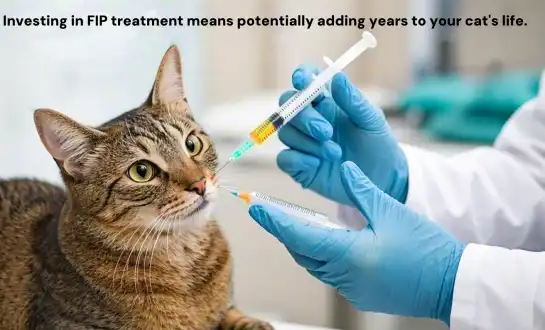
Is FIP Treatment Too Expensive? How to Budget for GS-441524?
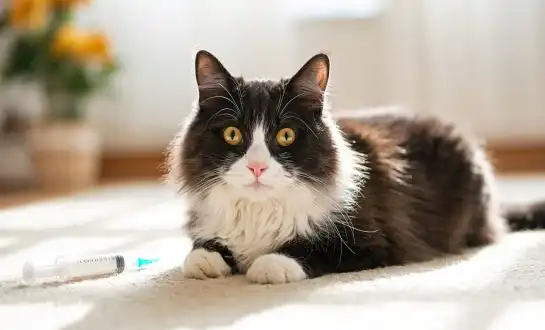
How to Handle Painful GS-441524 Injections: 5 Tips to Ease Your Cat's Stress
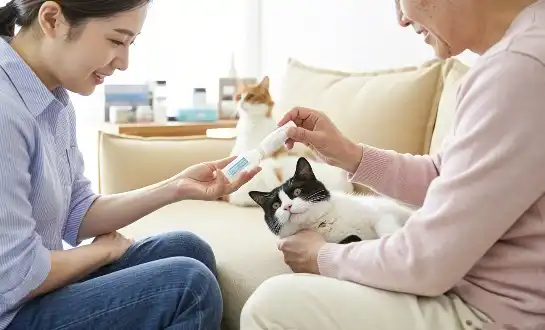
Does My Cat Need a Special Diet During GS-441524 Treatment?
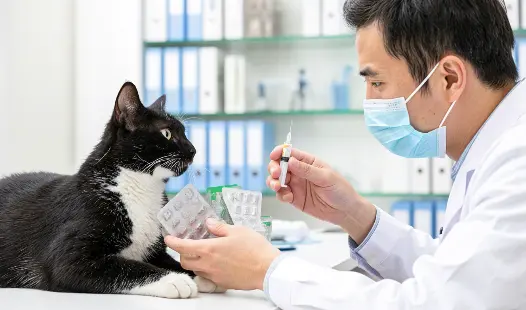
GS-441524 Injection vs. Tablets: Which Form is Better for Your Cat?
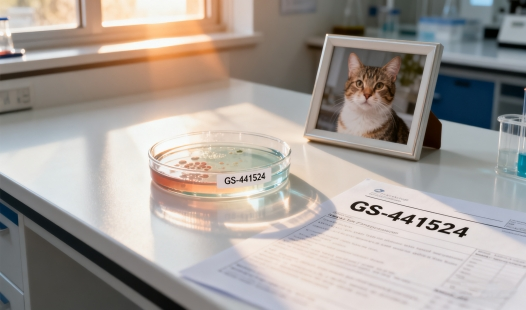
What are the differences in treatment for wet and dry FIP?





